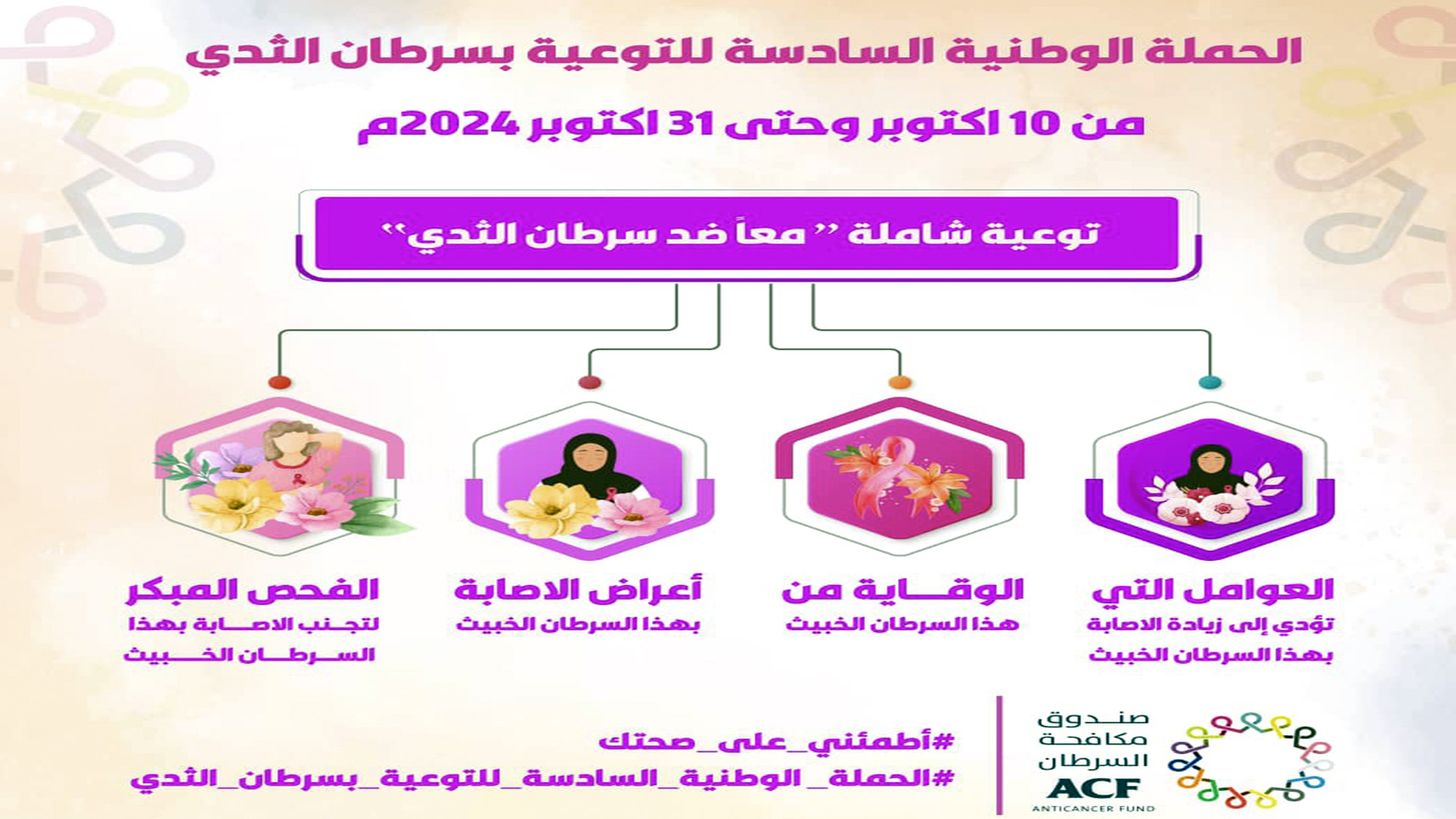Sana'a - Saba:
Every October, the global community dedicates the month to raising awareness about breast cancer prevention and treatment, symbolized by the color pink in the initiative known as "Pink October."
This campaign emphasizes the importance of early detection and education surrounding breast cancer, the most prevalent cancer among women worldwide.
Awareness efforts during this month focus on promoting regular screenings, which significantly increase the chances of successful treatment and recovery. The global "Pink October" initiative began in October 2006 as an international charity campaign aimed at providing information and support for those affected by the disease.
Recent studies indicate that breast cancer has become the most common malignant tumor globally, surpassing lung cancer for the first time in 2020. While it can affect both men and women, it is more frequently diagnosed in women, with one in eight women likely to be affected in their lifetime. In 2020, approximately 2.3 million women were diagnosed with breast cancer, leading to around 500,000 deaths worldwide. By the end of that year, there were 7.8 million women alive who had been diagnosed with breast cancer within the previous five years.
"Pink October" fosters various initiatives aimed at educating the public on breast cancer prevention, emphasizing early detection, which can halt the spread of tumors and improve quality of life for those affected.
In Yemen, the Cancer Fund is launching its sixth national awareness campaign this October under the slogan "Rest Assured of Your Health." Running until October 31, the campaign seeks to enhance community knowledge about breast cancer symptoms, risk factors, preventive measures, and self-examination techniques, thereby reducing incidence and mortality rates associated with the disease.
Dr. Abdulsalam al-Madani, chairman of the Cancer Fund’s Board of Directors, noted that breast cancer is the most common cancer in Yemen, largely due to low community awareness about the importance of self-examination and early detection. He identified key risk factors, including advanced age, late pregnancies, lack of breastfeeding, smoking, obesity, and sedentary lifestyles.
Dr. al-Madani emphasized that breast cancer is treatable if caught early, stating that early detection greatly increases the likelihood of successful treatment. He encouraged community engagement in the campaign, urging everyone to disseminate awareness messages through social media and other platforms.
Breast cancer occurs when breast cells grow abnormally, leading to tumors. The most common type begins in the milk-producing glands, though it can also develop in other breast tissues. While research has identified various lifestyle, hormonal, and environmental factors that may elevate risk, the precise causes of breast cancer are still not fully understood.
Factors contributing to breast cancer include advanced age, a family history of the disease, late pregnancies, and lifestyle choices such as lack of exercise and smoking. Making lifestyle changes—like regular self-exams and clinical screenings, maintaining a healthy weight, and following a nutritious diet—can significantly lower the risk.
Knowledge of risk factors and awareness of early signs of breast cancer are crucial, as early detection can lead to recovery rates as high as 95%. The message is clear: education and proactive health measures can save lives.

| more of (Reports) |




